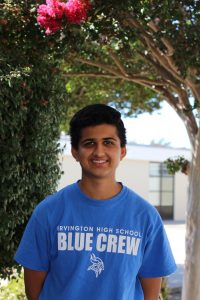Memo from Collegeboard:
March 31, 2021
Good morning students,
In a recent survey we sent out, it was discovered that only 98% of students felt extreme stress in an academic environment. Clearly, this is not enough, and as we always strive for success, we will be instituting some changes to increase this number. We have decided to make several changes to the proctoring of online AP tests so that our wonderful children can be more challenged:
- Full body camera checks: Students must stand up and show their entire body, then turn around to make sure they are not carrying any materials. They must stand up and repeat this every 5 minutes to ensure full security.
- Room and house checks: Students must give us a 15-minute tour of their entire house, including bathrooms and closets to make sure no one is hiding to help them cheat on exams. This tour must be given twice: once before and once after the break.
- Computer Control: Students must handover complete control of their computer to Collegeboard 7 days before and 7 days after the exam to ensure security. This is nonnegotiable, and history, applications, as well as usage information will all be checked.
- Signed Statement of Honesty: Usually, testers will copy a short statement agreeing not to cheat or plagiarise on exams. However, to make sure that they are really honest, we have decided to extend this short statement to a 20-page single-spaced essay. The statement counts for exam time, cannot be copy pasted and must be in Times New Roman 12.
Thank you for your cooperation! We hope these measures will make you feel more secure in your tests
Sincerely,
Collegeboard
This shocking memo has students in tears. It is clearly an unfair infringement of rights and extremely stressful to anyone taking an AP exam. Full body checks are in violation of online privacy. How can students simply stand every 5 minutes and model for the camera? Not only is it a clear waste of time but also, it is nerve-racking to those who are not photogenic. Plus, many cameras cannot capture the full body of a person, so they must waste time adjusting their cameras so they can prove that they are not cheating.
Room and house checks will also give some students much more advantages than others. Many students have siblings or parents, who now pose as threats to Collegeboard simply because they can be used to cheat on exams. However, the entire notion of a house and room check violates one’s personal space and makes them highly vulnerable. The same goes for computer control. There is absolutely no need to control a computer for 14 days under the premise of security. Collegeboard can use this user data to grant unfair advantages to students and violate their privacy by distributing the data to colleges who are eagerly on the lookout for their next victims.
The signed statement is perhaps the most absurd requirement. One can gain nothing from writing such a long statement other than wasted time. Taking this time out of the test will force students to rush even more.
All in all, these strange changes to proctoring offer serious concerns about the test and privacy and must be repealed.









